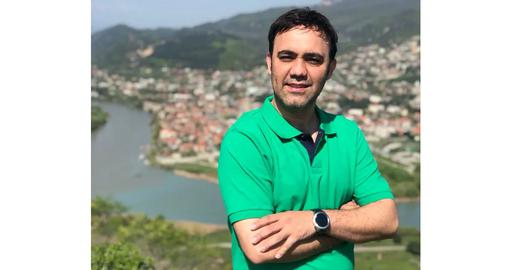Gholamhossein Mohseni Ejei, the chief of the judiciary of the Islamic Republic, has recently promoted two judges with infamous human rights records.
Mohammad Movahedi Azad, a former head of the High Disciplinary Court of Judges, has been accused of overseeing the torture and execution of political prisoners. He has now become attorney-general.
The previous holder of that post, Mohammad Jafar Montazeri, has been promoted to head of the Supreme Court.
Mohammad Movahedi Azad
Born in Qom in 1960, Movahedi Azad was only 24 when he assumed the role of a judge in the Islamic Revolution Court.
Throughout the past 38 years, he held various positions within the judiciary.
Until August 6, Movahedi Azad was the head of the High Disciplinary Court of Judges, which investigates judicial conduct.
He previously served as administrative prosecutor, deputy chief justice for Tehran and head of the Courts of the Islamic Revolution in Tehran.
According to the Ensaf News website, he initially worked as a prosecutor in Tehran province. Over a span of 10 years, he held many positions including assistant to the public prosecutor, deputy prosecutor, prosecutor, before heading a first instance court within a branch of the Islamic Revolution Court in the capital.
Movahedi Azad presided over the Tehran Court of Appeal during another decade, a period that coincided with widespread protests over the disputed 2009 presidential election.
He significantly participated in the crackdown on dissent during that period, and human rights lawyers such as Saeed Dehghan have labeled the court he was heading the "Court of Approval."
"Within the judiciary, responsibilities are rotated among officials and clerics,” Dehghan tells IranWire. “Our core issue stems from the fact that the government operates based on Sharia principles. Under Article 162 of the Constitution, both the president of the Supreme Court and the attorney-general must be mujtahids, the highest clerical rank."
“In essence, they lack both fairness and a comprehensive understanding of judicial matters,” he adds. “When assessing the origins and trajectories of those who have been appointed thus far, it becomes evident that many of them have a track record of human rights violations."
For instance, President Ebrahim Raisi is a former head of the judiciary and an ex-member of the “death commission” that oversaw the executions of political prisoners in the 1980s.
The judiciary’s current chief, Mohseni Ejei, held the post of minister of intelligence in the Mahmoud Ahmadinejad administration.
Mohammad Jafar Montazeri
Montazeri is a judge who is under US and UK sanctions for his involvement in the brutal suppression of last year’s anti-establishment uprising and the execution of a dual Iranian-British citizen, Alireza Akbari.
In 2016, Montazeri was appointed attorney-general by Sadegh Larijani, the head of the judiciary at the time.
In this role, he issued a directive to courts in September 2022 to issue harsh sentences to many of those arrested during protests, according to the US Treasury Department.
Pegah Banihashemi, a lawyer, says that the overwhelming majority of judicial officials are tied to the revolutionary courts.
"Revolutionary court judges are among the most tightly aligned with the system. Hence, only judges with a history of involvement in the Revolutionary Court can ascend to top positions," she says.
Shifts in positions within the judiciary are “entirely discretionary” and are aimed at serving the interests of the “core center of the system," the lawyer adds.
According to Dehghan, when dealing with the Iranian judicial system, the central question is: "Who are these officials within the judicial system?" Are they truly jurists? Do they possess a genuine understanding of legal matters? For instance, it is impossible to assume that Mr. Montazeri, in his role as attorney-general, acted justly and possessed a comprehensive grasp of judicial affairs.”
"An individual who, as the country's attorney-general, has authorized unlawful and violent actions against Iranian women [without hijab], and yet failed to respond to or take action regarding acid attacks and crimes against protestors, or who falsely declared the disbanding of the Morality Police, such an individual is neither just nor well-versed."
An Gang of ‘Corrupt Agents’
The latest appointments within the judiciary, as Dehghan points out, amounts to nothing more than the reshuffling of a handful of influential clerics who are in a competition to outdo one another in abusing the rights of Iranian citizens.
"I perceive these changes as a transfer of authority to a minority of mullahs and clerics, whose primary aim is to impose Sharia directives and religious ideologies on the populace,” the human rights lawyer says.
"These individuals have forced the capable and talented youth to remain confined at home, imprisoned them, or compelled them to leave the country. Consequently, we shouldn't anticipate any substantial change arising from this approach and conduct. Just as planting a cactus seed won't yield roses, similarly, such an approach won't lead to positive transformation."
"In such a decaying system characterized by corrupt and uninformed agents, especially within the judiciary, the people of Iran are either plaintiffs, have become plaintiffs, or will inevitably become plaintiffs," he concludes.
visit the accountability section
In this section of Iran Wire, you can contact the officials and launch your campaign for various problems

























comments